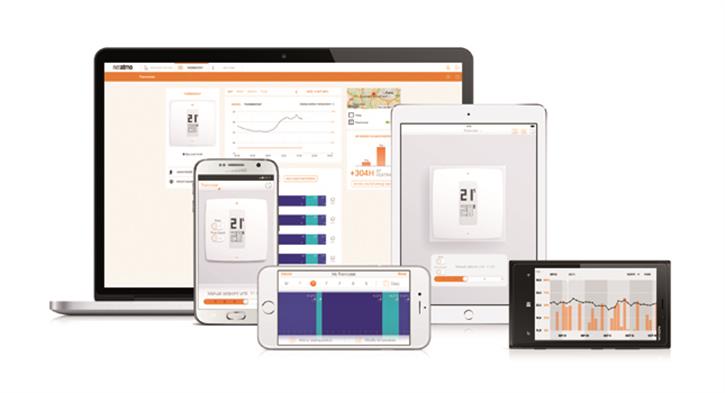

Richard Paine discusses how demand side management technologies such as smart thermostats can further bolster heat pumps’ environmental credentials
In 2003, there was a staggering 500 million connected ‘things’ on the planet, conversing and sharing data via the Internet. Since then there has been an explosion in the growth of connected items and in 2008 the number of connected devices exceeded the global population.
Expected to reach 50 billion connected smart devices by 2020, equivalent to 6.5 items per head of population, the connectivity age is well and truly here, and helping to shape every aspect of our modern living.
As such, with the availability and accessibility of data becoming the norm, homeowners are increasingly looking for ways to reduce their energy consumption and household bills.
Renewable heating technologies such as air source heat pumps, which can be up to 300% efficient and can supply heat when exterior temperatures reach as low as -20oC are therefore a suitable solution.
Boosting performance
That said, there is scope to improve their efficiency still further, with the use of smart meters and controls. A form of demand side management, smart meters and controls enable end users to control their heat pumps via their smart phone, with smart thermostats allowing for adjustments to temperature and reductions in consumption at the press of a button.
Providing customers with unconstrained choice, control and ability to tailor their heating requirements, smart thermostats and controls aid in reducing energy consumption.
Increasing in importance and likely to become paramount to reducing the UK’s future energy consumption, compelling research has highlighted the true potential of smart controls.
For example, a recent report by the BBC concluded that the ‘smart energy revolution could help avoid UK blackouts’ and the National Grid’s latest Future Energy Scenarios report also suggested smart metering could reduce peak consumption among residential users by over 1.5 Gigawatts by 2035.
Additionally, specific research within the renewable heating sector has produced enlightening results, as a recent live poll of leading renewable heating installers by Daikin UK has found that remote controls via web or app and smart thermostats are the most requested system additions.
As every facet of our lives become more integrated with connected devices, the demand for real time data and the ability to instantaneously make system changes to household services will inevitably increase. This increased transparency in terms of efficiency and environmental impact will in turn further drive demand for sustainable heating solutions.
Therefore, pairing smart controls with heat pumps provides offers homeowners total control, flexibility and data access for homeowners as well as on going advice on how to reduce running costs.
Richard Paine is product manager for domestic heating and renewables at Daikin UK
Pictured: Daikin's Netamo controller
If you'd like to keep up-to-date with the latest developments in the heating and plumbing industry, why not subscribe to our weekly newsletters? Just click the button below and you can ensure all the latest industry news and new product information lands in your inbox every week.